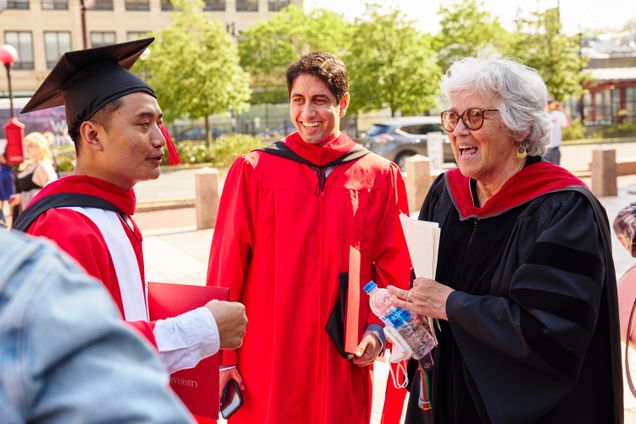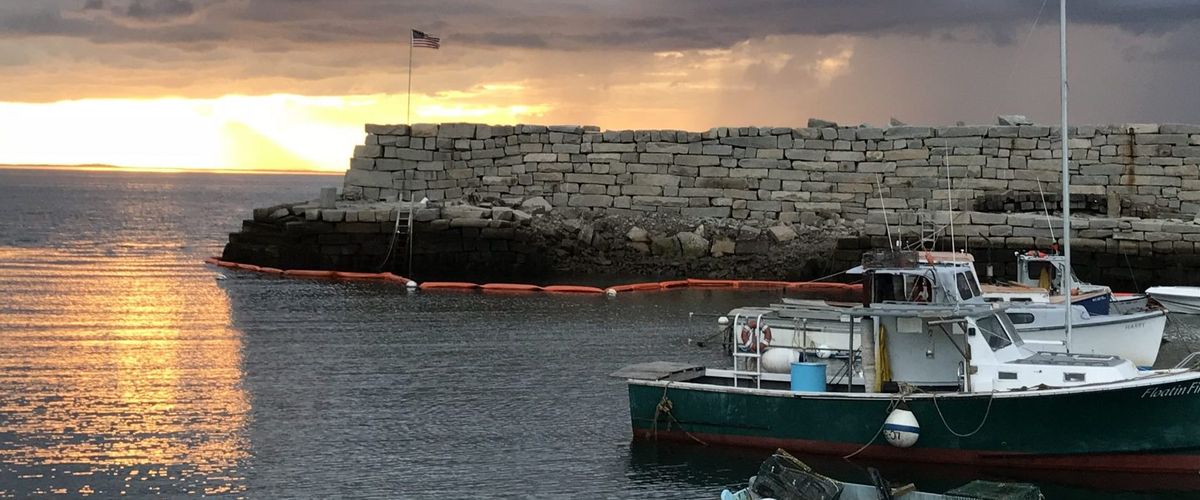By Thomas W. Porter, Jr., retired Lecturer and Co-Director, Program on Religion and Conflict Transformation
I would like to begin with our good fortune to hire Dr. Judith Oleson as Co-Director of the Religion and Conflict Transformation (RCT) Program in September 2016. Judith had recently left a tenured faculty position at Gordon College, where she founded the Peace and Conflict Studies Program. While you might know a few things about tenure and what it means to leave such a position, the key is why she left. She left over the College’s policies regarding LGBTQ-identifying students, which indicates Judith’s ethical principles and strength in her personal convictions.

As many of you know—and some have pointed out to me—I am not a researcher. But Judith was. She developed a research component to our Program, where she taught courses in Research Methods, while she undertook significant research projects herself. For her dissertation, she studied reconciliation processes in South Africa, Israel, Palestine, Egypt and the US, identifying key characteristics and skills needed for leaders to facilitate reconciliation. She brought together five remarkable Research Fellows who added much to the life of the Program. What a gift it was to work with Judith. I can’t imagine a more collaborative partner. I think it is remarkable that together, in a short period of time, we created two online courses, one a Doctor of Ministry (DMin) course and the other a Massive Online Open Course (MOOC).

Judith was a wonderful mentor of students. At Gordon College, she directed the Field Practicum Program, and at Boston University, she worked closely with students who were participating in practicums related to our clinic program, including leading twice-monthly seminars. She started a monthly Circle for students in the RCT program to provide support and build community, as well as create opportunities for self-reflection, spiritual practices, and learning the circle methodology.
Regarding the practicums, Judith developed strong partnerships with different organizations working on different aspects of conflict transformation. She partnered with Hebrew College to collaborate regarding learning across faiths, a research focus of hers.
Judith developed a course entitled Transitional Justice and Reconciliation: Healing Collective Wounds. This class drew on her long experience of working with students in the Balkans as well as her work with Native American Indians in Maine and First Nation Peoples in Canada. With her colleagues at the European Center for the Study of War and Peace in Croatia, Judith developed a course in post-conflict social reconstruction, and continued to work with to build a travel seminar to the Balkans.
For all her academic achievements, I was also so impressed with how Judith and her husband Mark provided extended hospitality for Peace and Justice workers, artists, and others visiting beautiful Cape Ann, which was first settled by Judith’s own ancestors.
And yet, the most impressive thing about Judith was how she dealt with cancer. Through the debilitating therapies, she continued working, and I never heard her complain. She worked as long as humanly possible; grieved to leave the work she loved.
The death of Judith Oleson is a great personal loss to me, and to all those who care about peace and justice.
Thank you, Judith, for all the good times we had working together. And thank you for your friendship.
Background photo: Taken by Dr. Oleson, this photo was originally shared with the BUSTH community in summer 2018.
